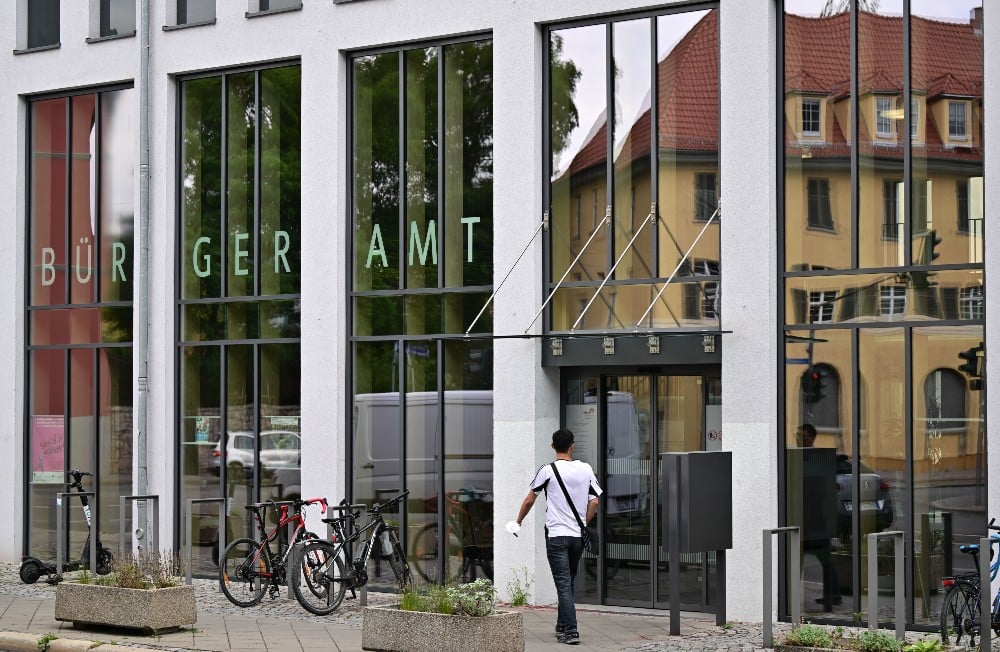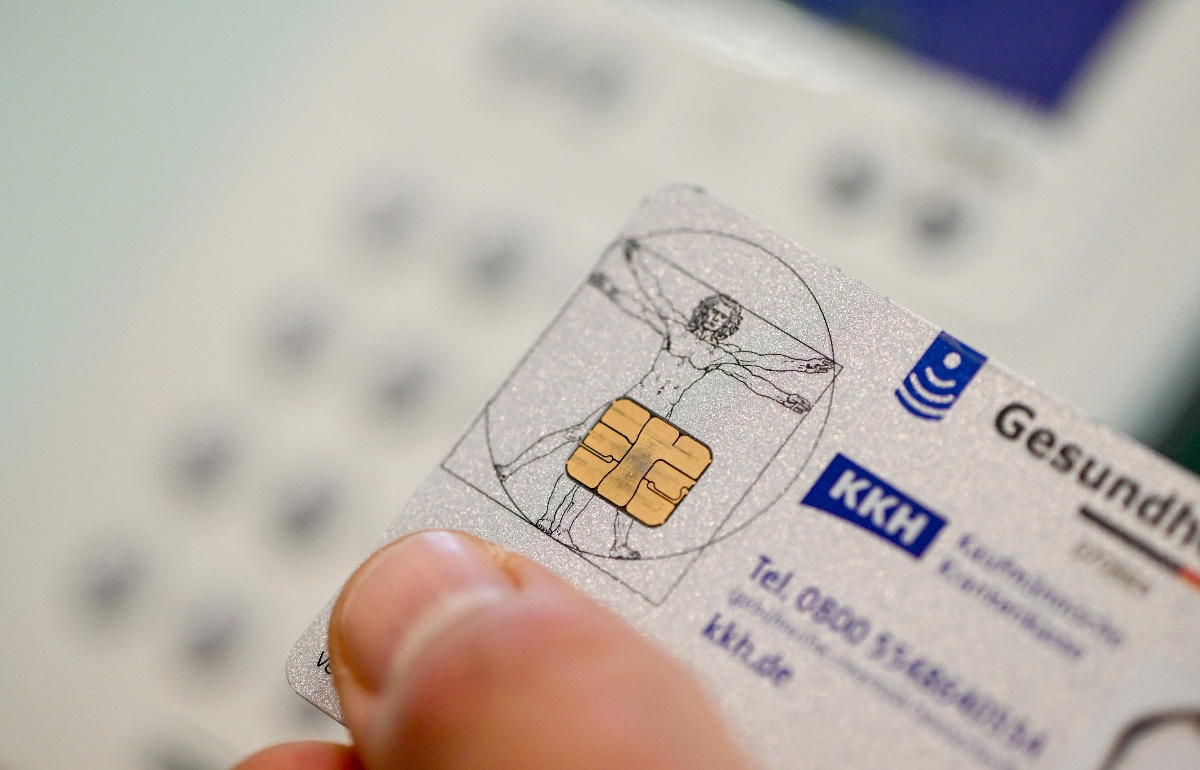In the summer of 2022, I attended a Q&A session that Olaf Scholz held with members of the public in the city of Magdeburg. Coming only a few months after the Russian invasion of Ukraine, most of the questions centred on sanctions, energy costs and Berlin’s response to the war.
But the response I found most revealing was on the dull topic of tax reform.
An audience member asked Scholz why the VAT rate on dog food is seven percent but on baby food it is 19 percent. Parts of the system “don’t seem very coherent to me,” the man said with obvious understatement.
READ ALSO: Bureaucracy and high taxes: Why Germany is becoming less attractive for business
“I don’t think you’ll find anyone who understands the list of VAT exceptions,” Scholz replied with a grin, adding that “at any rate I don’t understand it.”
“But I can tell you that all attempts to change it have ended in a massive disaster,” he continued. “If we were to lay an empty table today, we would definitely do differently. But the system is there now and I think we will have to live with it for a while yet.”
It was a fascinating answer. Essentially, Scholz admitted that there are some regulations that are so complex that no one really understands them anymore. But trying to simplify them just isn’t worth the effort.
It reminded me of a story I once heard about Cairo’s famously dysfunctional traffic system.
Legend has it that Egypt invited a group of Japanese planners to come up with a way to fix it. But the Japanese were so befuddled by what they found that they advised the Egyptians to leave things exactly as they were. The system was so confusing that any attempt to tamper with it might only make things worse.
A similar thing could be said of Germany’s regulatory system. It can be contradictory and infuriatingly slow, but open the can of worms of trying to simplify it and you will probably live to regret it.

Summer snow and other oddities of German red tape
VAT serves as a notorious example. But, wherever you look in German life, you will find egregious cases of sprawling and overlapping regulations.
A few amusing examples:
In August 2022, the town of Esslingen in Baden-Württemberg wanted to organise a summer fête to help local restaurants get back on their feet after Covid. The idea was to build temporary food huts that restaurants could rent cheaply. But planning authorities insisted the huts be built to take the weight of heavy snowfall – during a month with average temperatures of 19C. The fête went ahead, but the eventual costs were “exorbitant,” city officials said.
Last winter, the town of Tübingen acted on an appeal from the federal government to cut gas usage. They decided to switch off street lights between 1 am and 5 am, something that would cut energy costs by 10 percent. Shortly afterwards though, they had to backtrack. The measure contravened a regulation on providing light for pedestrians. In the event of an accident they could have been sued.
A landlord in Hanover recently recounted her efforts to turn an empty attic into student housing. Her planning application was first rejected by fire authorities who said that the branches of a tree were blocking an escape route. Their proposal to cut the tree back was then turned down by the city authority for green spaces, which argued that trees form “a vital part of the city scenery” and “must be protected at all costs.”
Flood of new rules
It is not as if politicians aren’t aware that over-regulation is having a stifling effect on society’s ability to function and adapt.
In its coalition agreement, Scholz’ ‘traffic light’ government committed itself to cutting bureaucracy 63 times. There is an entire section in the agreement on how they planned to cut down official paperwork.
READ ALSO: Germany unveils new plan to be more immigrant and digital friendly
But changing such a deep-seated German mentality is a different matter.
In a withering report published in November, the government’s own bureaucracy watchdog, the Normenkontrollrat, concluded that under the current government the costs of bureaucracy “have reached a level that we’ve never seen before.”
Far from cutting back paperwork, the traffic light coalition has loaded companies, administrators and citizens with a whole raft of new rules, the watchdog said. “Ever more regulations have to be observed and implemented in less and less time,” it concluded.
The frustration is being felt most acutely by local administrators, who say that they just don’t have enough staff to cope anymore.
An open letter sent to Scholz by town councils in Baden-Württemberg pleaded that “things can’t go on like this. Ever more laws and regulations, all too often containing mistakes …are simply resulting in an unmanageable flood of tasks.”
Meanwhile, Germany’s revered Mittelstand, or small and medium sized family businesses, has warned that over-regulation is the single biggest threat to their future viability. A survey among middle-sized companies last year showed that they were far more concerned about regulation than energy prices. Other surveys have shown that a majority of companies don’t understand the regulations they are expected to follow, while two thirds say they make no sense.
“Enormous bureaucratic burdens are combining with labour shortages, lengthy administrative procedures, permanently high energy prices and high taxes in a blow to the future of our business location,” warns Marie-Christine Ostermann, head of the association of family business.
READ ALSO: Why German family businesses are desperately seeking buyers
Stuck in the analogue era
For some though, the problem isn’t the regulation itself, it is the fact that there are not enough bureaucrats to deal with it all. After all, they argue, the rules are there to ensure that everyone’s concerns are accounted for.
“An unbureaucratic administration would be a nightmare,” protested economist Georg Cremer in a recent article for Die Zeit. “Sure, there can be too much of a good thing… (but) a prosperous social life is absolutely dependent on the government and administration being bound by law.”
Germany’s welfare system, Cremer points out, requires an army of bureaucrats who assess each claimant’s case based on things like the age of their children and their specific rental needs. “Undoubtedly, the welfare system is over-regulated”, he admits, but we also shouldn’t forget that any attempt to simplify it would make it less fair.
The Deutsche Institut für Wirtschaft, a left-wing economic think tank, has therefore argued that the answer to Germany’s woes is not to strip back regulation, but to employ more staff and push on with the digitisation of key services.
That sounds good in principle. But, when it comes to modernising Germany’s ossified public institutions, it is easier said than done.
A law passed in 2017 obliged local administrations to offer close to 600 of their services online by the end of 2022. A year past that deadline, just 81 of the services have been made available across the country.
The reason for the delays? Local governments are using software that is incompatible with the services developed by the federal government. Meanwhile bureaucrats often display a “grievous” lack of knowledge of how to use a computer, a recent analysis by consumer website Verivox found.

A German Javier Milei?
In September of last year, Scholz appeared to have finally recognised that things have gone too far.
Doing a good impression of an anarcho-capitalist then running to be president of Argentina, the chancellor gave a rousing speech to the Bundestag in which he called on the country to unite against the scourge of excessive regulation.
“Only together can we shake off the blight of bureaucracy, risk aversion and despondency that has settled over our country for years and decades,” he said. “It is paralyzing our economy and causing frustration among our people who simply want Germany to function properly.”
Two months later, Scholz announced he had reached a “historic” agreement with the federal states to speed up planning processes and to make life “palpably” easier for German citizens.
The agreement, since praised by the Normenkontrollrat as “having a lot of potential,” will mainly muzzle environmental agencies, thus allowing LNG terminals, wind turbines and motorways to be built through sensitive natural environments.
The jury is still out on whether it will simplify your everyday life.
At the start of this year more new laws came into force, including the government’s now notorious gas heating ban.
One that passed with less attention was a decision to abolish child passports. Under the old system you could take your child to your local Bürgeramt and they would give you a Kinderpass on the spot for €13.
READ ALSO: How Germany can make life easier for foreign parents
Now, all children are required to have proper documents that are valid for six years. The hitch? The passport (which costs €40 and takes six weeks to arrive) is only valid as long as your child’s face remains recognisable.
“The new system makes absolutely no sense for children under six,” the lady at the Bürgeramt told me when I applied for my newborn baby’s first passport this week. “A baby’s face changes so much that you’ll have to get a new one after a year anyway.”
This article originally appeared in The German Review, a twice weekly newsletter full of analysis and opinion on German politics and society. You can sign up to read it here.





 Please whitelist us to continue reading.
Please whitelist us to continue reading.
Member comments